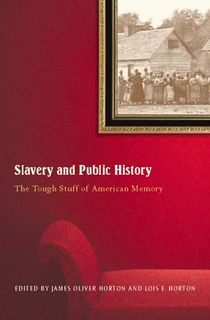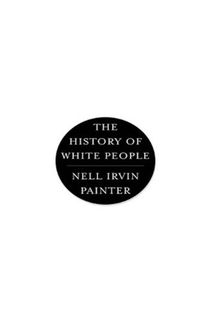They say that whoever forgets history is doomed to repeat it, but there’s a difference between knowing your history and knowing how our own (possibly biased) perception of history shapes our understanding of ourselves, and our paths forward, as individuals and as nations. Historiography is the place where the study of history meets the study of how that history is recorded and understood, shaping policy and beliefs in the present day.
In a time when how history is taught in our schools is a major political flashpoint, and there is greater awareness than ever before that what we think we know about our own history may be only part of the story, historiography is a vital and compelling discipline. These six historiography books will not only teach you new things about history, but will give you the tools you need to look at what you already know—or think you know—in a new light.

Slavery and Public History
America’s history of slavery and exploitation has rarely been more talked about—or more contentious—than it is right now. From discussions of “critical race theory” being taught in classrooms to debates about Confederate monuments, the nation’s history of slavery remains a hot-button political talking point on both sides of the aisle, and the question of how we reckon with that history, and what it will take to move forward from it, is as urgent as ever. In this vital and extensive volume, nearly a dozen writers from some of the nation’s best universities come together to tackle one of the toughest parts of American history, examining how the narratives that shape our understanding of the past will also affect the way we address these lingering considerations going forward.

The Myth of the Lost Cause and Civil War History
Perhaps no other event has had a more profound shaping effect on American history, society, culture, and politics than the Civil War, which began in 1861. However, as significant as the war is in our history, our understanding of it has been heavily shaped by events that took place in subsequent years. Even as those in favor of keeping Confederate monuments standing argue that they were simply a product of the time period, others point out that many of the monuments were not erected until the civil rights era. In the same way, the myth of the “Lost Cause” has shaped how many Americans perceive the Confederacy and the causes (and outcomes) of the Civil War. In this book, nine scholars “critically (and, at times, acerbically) assess the origins” of the Lost Cause myth (Civil War History), showing how the narrative that shapes so much of our understanding of the war was manufactured after the fact, and how these ways of framing history continue to echo today.

Silencing the Past
This pioneering work of historiography has recently been incorporated into the HBO docuseries Exterminate All the Brutes, but it has been changing minds and giving new voices to the unheard since it was originally published in 1995. Written by a distinguished Haitian scholar, this confrontational book examines how power shapes history—and how the shaping of history reinforces power. With examples as diverse as the Alamo and the Holocaust, the Haitian Revolution of 1791 and the voyage of Christopher Columbus, this “feast for the mind” (Booklist) is a “beautifully written, superior book” (Foreign Affairs), and one that will change you way you think about history—and who gets to write it.

The History of White People
“Whiteness,” as a racial and social construct, is one that hangs heavy over much of American and European identity, but it is not one that has stayed static throughout the ages. In this New York Times bestseller, Princeton University professor of history Nell Irvin Painter examines the history of race as a social construct, what it means to be white in America, and how definitions of whiteness have changed over time to incorporate previously excluded groups. In so doing, she creates “one of the most important books ever on the social construction of the notion that there is a ‘white’ race” (Tikkun) that “should be read by all historians and anyone with an interest in cultural studies” (Library Journal).

Lies My Teacher Told Me
One of the best-known works of modern historiography, this American Book Award winner was originally published in 1995, and has been released in a variety of revised editions ever since, including recent additions addressing topics such as 9/11 and the war in Iraq. The idea behind this national bestseller is simple enough. The author examines a dozen widely-taught American history textbooks (the number increased to 17 in later editions) and finds in them a variety of myths, half-truths, misleading statements, and outright lies. More than just an exposé, however, this beloved text showcases the author’s belief that these very omissions and obfuscations actually make history boring to students, and make them less likely to understand or care about their national heritage. In so doing, he made a book that is, itself, often taught in history classes to this very day.

Thinking About History
Designed for the classroom, this “essential” book (Choice) offers “a valuable contribution to the history of history” (The Journal of American History). While most of the other books on this list focus on the historiography of specific subjects, Maza’s book examines the historiography of history itself. Not only how it is formed, shaped, written, and taught, but who does the writing and teaching, the research and fieldwork, and how the assumptions and biases of our own historical views shape not only what we expect from our history, but what we get out of it. To the author, history is not an unchanging vault of facts to be memorized and regurgitated, but rather a vibrant field of ongoing inquiry, one that is vitally relevant to our daily lives.



